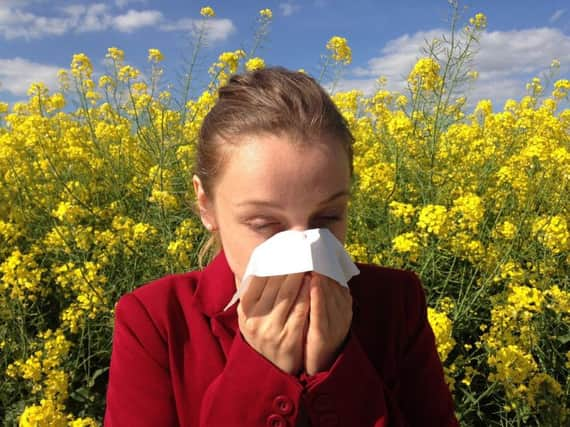How hayfever sufferers could be affected by the 'pollen bomb' hitting Britain


Tissues, antihistamines and eye drops at the ready - because Britain has fallen victim to a "pollen bomb".
As reported by Sky News over the weekend, warm winds travelling from the equator were being displaced by Atlantic depressions, causing a temperature change.
Advertisement
Hide AdAdvertisement
Hide AdThere were releases from millions of birch, plane and oak trees, creating the "pollen bomb" - and signalling misery for thousands of hayfever sufferers.
Forecasters predicted that the unwelcome guest will start to decline throughout this week, with Met Office pollen forecast for the North East set to "moderate" through until the weekend.
The country is currently in the midst of three pollen season, which tends to start in late March and run until mid-May.
Grass pollen season is from mid-May to July, with weed pollen running from end of June to September.
According to Met Office statistics, one in five people in the UK suffer from hayfever - but luckily for us, the North East isn't the worst-hit area.